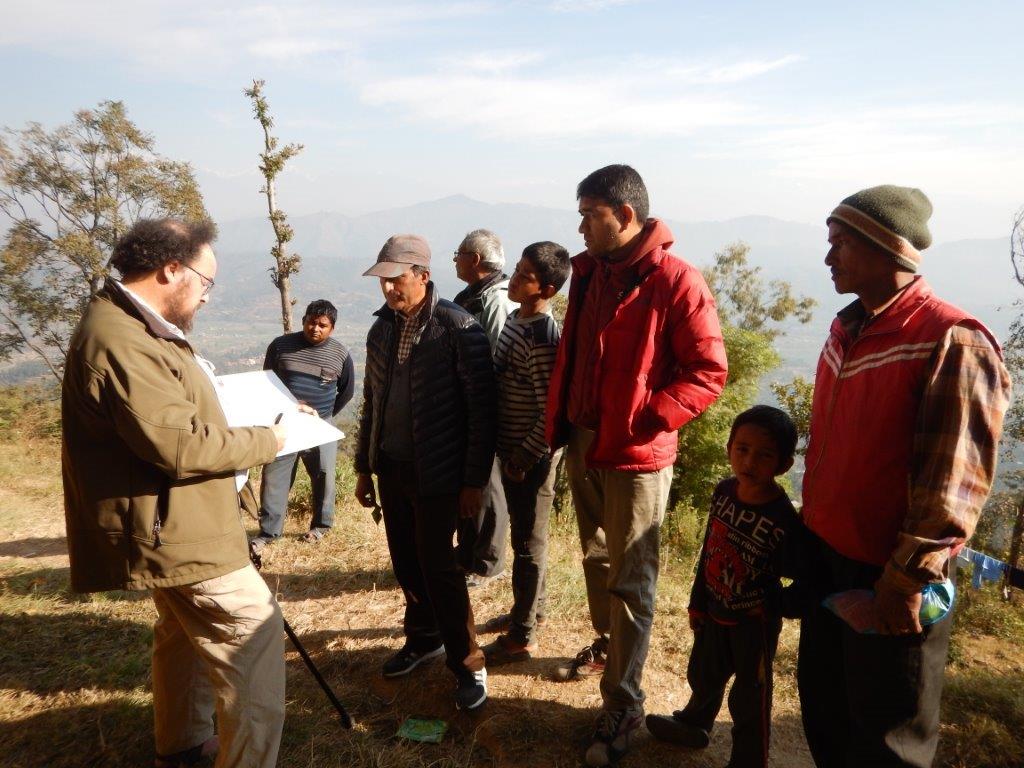
in the rural, mountainous terrain of Nepal.
Dr Mark Everard visited Nepal in December 2016 as part of the IWSN to cement links with Tribhuvan University, and also to develop a joint paper and research bid for submission under the ESRC-DFID Development Frontiers 2016-2017 research call. Both the bid and the paper address the implications of invasive alien plants (IAPs) for rural Nepal, and in particular consequences for the mountain springs upon which local communities depend and which are drying out under a changing climate exacerbated by geological instability and lifestyle shifts.
The science upon which the UWE/Tribhuvan University team are working has ‘real world’ applications in terms of IAP management as a contribution to water security, adapting the proven approach of the Working for Water (WfW) programme in South Africa. This will make a contribution to informing policy solutions to pressing challenges in Nepal. These challenges are particularly severe due to the almost complete dependence of rural people, comprising the overwhelming majority of the national population, on mountain springs for domestic and agricultural needs. Declining water availability places asymmetrically high burdens on women as primary natural resource stewards.
Our aim is for the paper and ensuing research to have ‘real world’ impact for local people, policy responses in Nepal, and local delivery of international agreements such as the UN Sustainable Development Goals, the Sendai Framework on Disaster Risk Reduction and the Paris Agreement on climate change.
